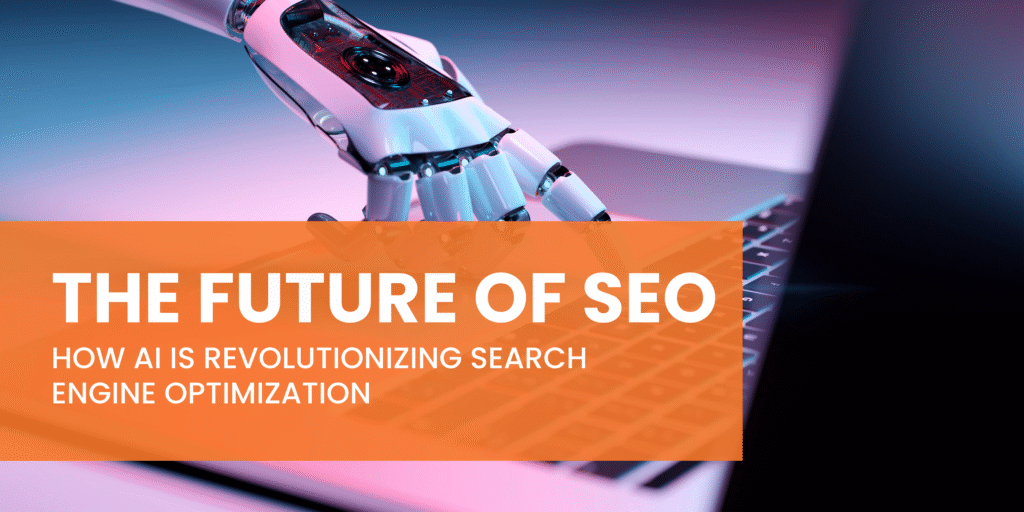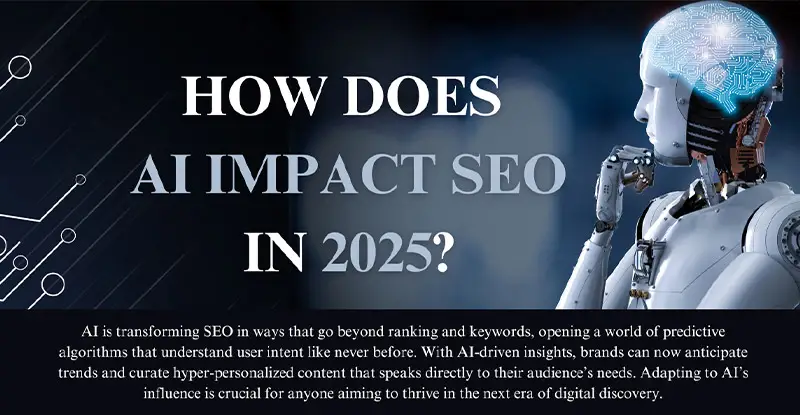AI-Powered SEO has recently brought a wave of uncertainties. One such uncertainty that echoes across the digital marketing teams is that: “Is AI killing SEO practices or triggering its greatest evolution?” Let’s find out.
Artificial Intelligence (AI) has altered the conventional paradigm of Search Engine Optimization (SEO). According to a SurveyMonkey study, in 2025, 51% of users are using AI tools to optimize their content and email campaigns and 41% of users are using AI tools to analyze data for insights. This data demonstrates the increasing adoption of AI SEO to generate and automate targeted, relevant, and effective content strategies.
Scroll down to Learn more about AI-Powered SEO and how marketers are taking advantage of it for navigating vast amounts of data and anticipating user intent.
What is the Function of AI-powered SEO?
AI-Powered SEO is using next-gen technology to help with efficiency in multiple aspects of SEO including keyword research, content planning, and on-page audit. AI is powered by machine learning and natural language processing technology that can help SEO systems better understand users’ intent and search context than ever before.
Google RankBrain and BERT are two examples of AI engines that interpret complex inquiries and improve search relevancy based on their datasets.
Additionally, SEO optimization tools can analyze vast amounts of data in real-time. Thus, making it easier to see live trends of what people are actively searching for. AI can also be used to help automate technical audits by identifying broken links or duplicate content.
How Digital Marketers Are Using AI-Powered SEO in 2025?

In 2025, AI-powered SEO fundamentally reshapes how digital marketers strategize and execute their campaigns. Here’s how marketers leverage AI to stay ahead in the trend:
- Perform advanced keyword research: Marketers use AI SEO tools like Semrush’s Keyword Magic Tool that apply machine learning to analyze large datasets. It uncovers high-performing and long-tail keywords, and predicts keyword ranking potential based on domain relevance and competition.
- Automate content creation: Natural Language Processing (NLP) models such as OpenAI’s GPT or Claude automate generating blog posts and meta descriptions. It also helps with optimising product copy for both user engagement and SEO.
- Analyze competitors effectively: AI solutions like SpyFu and Semrush analyze SERP rankings, backlink profiles, and identify content gaps with predictive analysis techniques. It incorporates continual data scraping to ensure that data remains relevant.
- Dynamically personalize content: AI leverages algorithms trained on massive amounts of behavioral data to analyze user response, experience and preference. This process is carried out with the objective of personalizing the user experience on a given web platform. AI can also assist in scaling personalized messaging, which can be optimized using algorithms, analytics and personalization engines that use behavioral data sources.
- Maximize voice search and local optimization: Language models utilize natural language processing techniques to understand conversational and verbally spoken queries which increases optimization for voice assistants and hyperlocal search queries.
This combination of artificial intelligence features provides marketers with data-driven insights and automates mundane tasks.
What are the AI SEO Challenges that Must Be Addressed Soon?
Despite numerous advantages, AI-powered SEO comes with certain challenges. Here are some most commonly faced challenges by digital markers:
- Misleading Content
When content is generated through automation with no human involvement, it can create bland, repetitive, or even wrong content. For example, sites publishing solely AI-generated articles have experienced ranking drops due to Google’s emphasis on content quality and usefulness. - Data Privacy and Security Risk
AI SEO tools routinely gather and process user behavior data, site analytics and metrics data to create optimizations for SEO. If this data is not properly handled, organizations could face violations of laws and regulations regarding data privacy (i.e., GDPR, CCPA). - Constant Algorithm Changes and AI Updates
Search engines regularly alter their ranking algorithms and roll out updates which can have unpredictable impacts on SEO performance. Marketers must stay prepared for these changes and make adjustments in their strategies to maintain and grow organic visibility. - Tool Fatigue and Complexity in Selecting the Right AI Solutions
AI SEO tools are currently flooding the market with wide range options. This consequently challenges marketers to identify and integrate the right tools for their workflow. The abundance of options combined with varied capabilities can overwhelm teams, leading to suboptimal strategies and wasted tools adoption.
These challenges must be addressed with strategic thinking in the near future.
Final Thoughts
The world market of artificial intelligence in marketing is predicted to hit USD 217.33 billion by 2034 and experience a CAGR of 26.7% from 2024 to 2034. With such growing markets, AI can improve SEO.
To effectively use AI powered SEO, it is vital that marketers combine AI with human creativity. For maximum effectiveness, marketers should choose ethical tools, stay up to date on algorithm changes, and act in accordance with E‑E‑A‑T standards. There should also be ongoing team training on data privacy and protection, in order to truly use AI technology in good faith. If these best practices are followed marketers will be able to utilize AI efficiently to create smarter strategies and develop user-first experiences.


